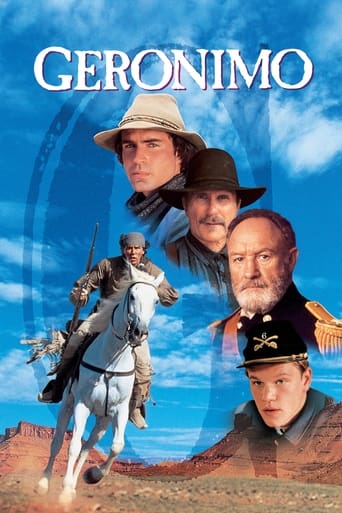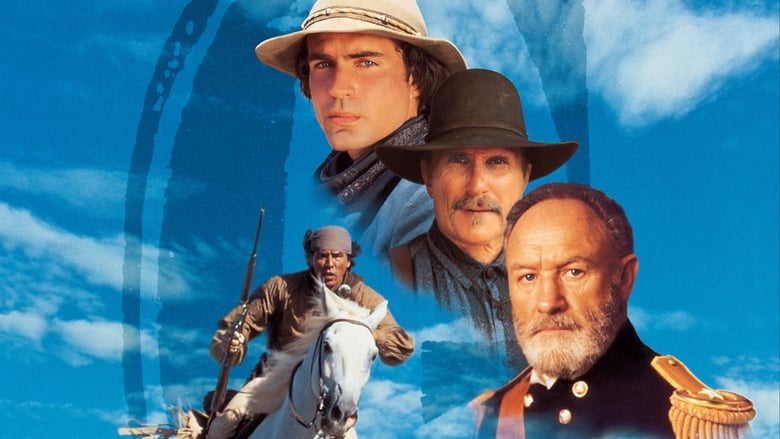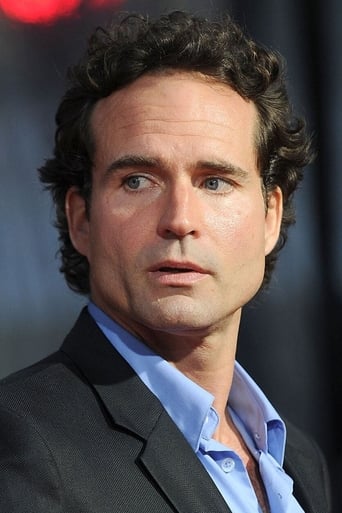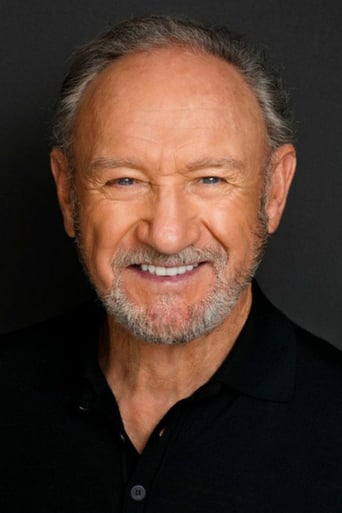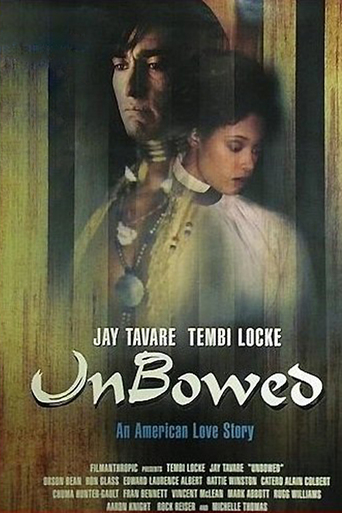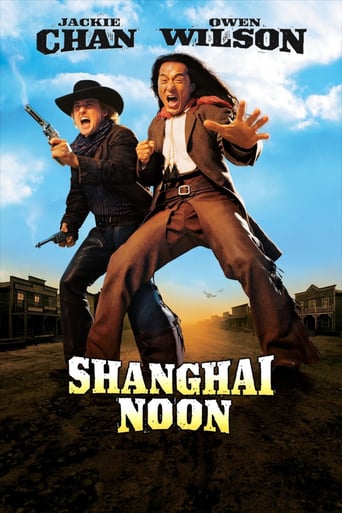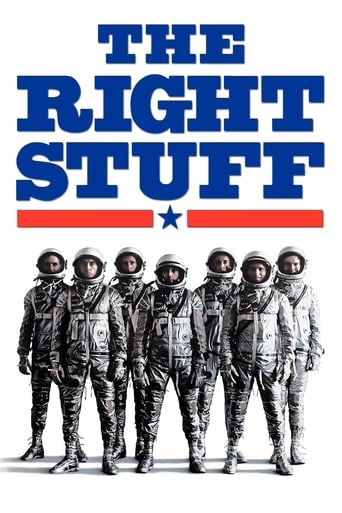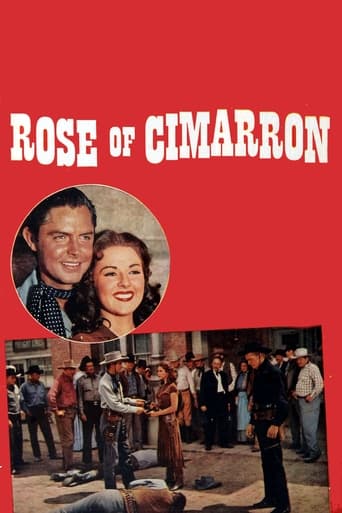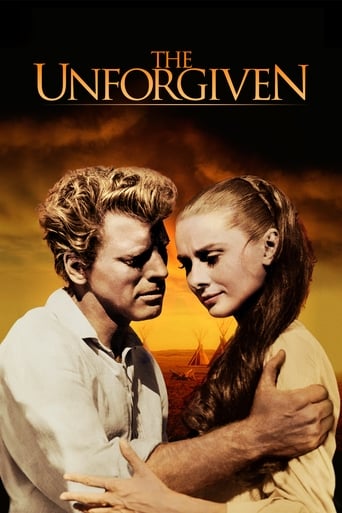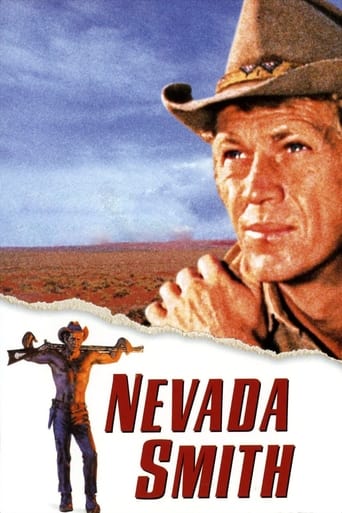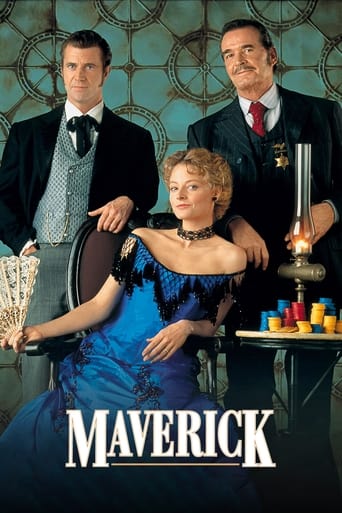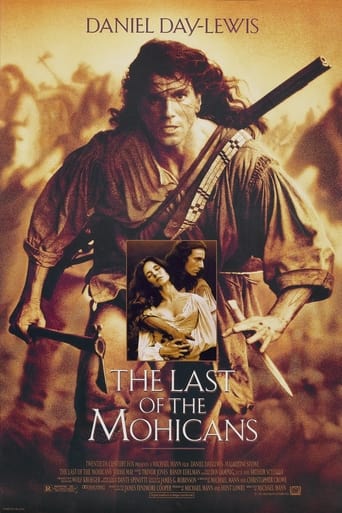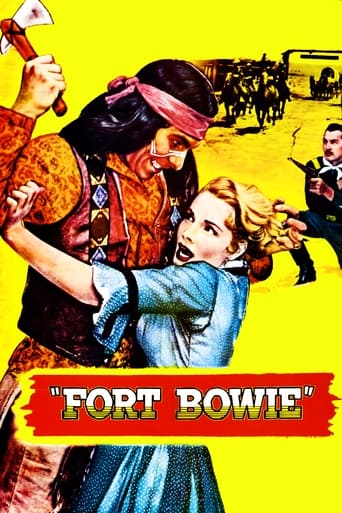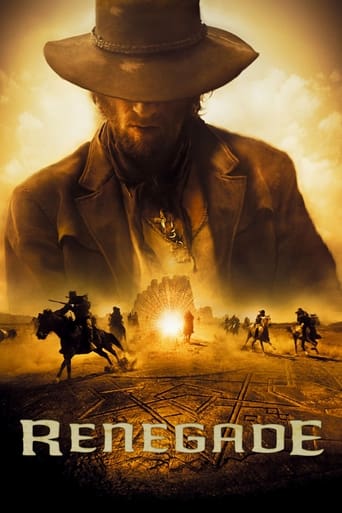Geronimo: An American Legend (1993)
The Apache Indians have reluctantly agreed to settle on a US Government approved reservation. Not all the Apaches are able to adapt to the life of corn farmers. One in particular, Geronimo, is restless. Pushed over the edge by broken promises and necessary actions by the government, Geronimo and thirty or so other warriors form an attack team which humiliates the government by evading capture, while reclaiming what is rightfully theirs.
Watch Trailer
Cast


Similar titles
Reviews
An interesting movie. It is more character-driven than action-oriented, although there is plenty of action. When Studi is on-screen, this movie pulsates with life--he's just great as Geronimo. In comparison, everyone else seems to be kind of walking through their parts. This may well be the director's attempt to portray the contrast between the organic and passionate lifestyle of living with the Earth versus the mechanical and passionless bureaucratic bulldozer-like takeover by soldiers and settlers. However, the portrayal of passionlessness should not be quite so studied and passionless.Again, Wes Studi is great. Watching his performance makes the whole thing more than worthwhile. This movie and this actor should be more well-known. And his name belongs on the cover sleeve, however the actual screen time of each actor works out. At one important point in the story he makes a speech that is not in English, and the language makes no difference. The meaning is there.
"I don't feel we did wrong in taking this great country away from them. There were great numbers of people who needed new land, and the Indians were selfishly trying to keep it for themselves." – John Wayne (interview) "Two thousand years of history, could not be wiped away so easily." – Bob Marley "The Indians must conform to "the white man's ways," peaceably if they will, forcibly if they must. They must adjust themselves to their environment, and conform their mode of living substantially to our civilization. This civilization may not be the best possible, but it is the best the Indians can get. They cannot escape it, and must either conform to it or be crushed by it. The tribal relations should be broken up, socialism destroyed, and the family and the autonomy of the individual substituted." - Commissioner Thomas MorganAfter demonizing Native American Indians for several decades, Hollywood suddenly began releasing a slew of revisionist westerns in the late 60s and early 70s. Enter films like "Buffalo Bill", "Ulzana's Raid", "A Man Called Horse" and "Soldier Blue", all of which forced their audiences to empathise with subjugated natives whilst portraying the "white man" as genocidal brutes bent on conquest. Even John Ford, one-time king of racist caricatures, tried to make amends with "Cheyenne Autumn", his apology for past pictures.Meanwhile, on the other side of the Atlantic, French, Italian and British film-makers were treading similar ground. With the dismantling of the British Empire, British directors began releasing a spread of anti Colonial war films, whilst European directors like Gavras, Wertmuller and Pontecorvo protested the treatment of Algerians and the aggressions of the French Empire.With the battle for history won, films in the early 90s then began to treat this subject in a much more elegiac fashion. Films like "Dances With Wolves", "Thunderheart, "Squanto", "Geronimo" and "The Last of the Mohicans" serve up romantic myths, treating Native Americans with a mixture of reverence, nostalgia and melancholy.Released at the end of this wave, Walter Hill's "Geronimo" focuses on the "Geronimo Campaign", a period of history between 1885 and 1886 in which five thousand US cavalry men attempted to hunt and kill a group of Apache Indians. As is typical of these films, the US Cavalry is portrayed as an aggressive invader whilst the Indians are treated as a band of unfairly persecuted freedom fighters. With the Apaches placed in reservations (ie, concentration camps), caged in trains like Holocaust victims and betrayed by fellow Indians seduced by the false promises of white men, the film is implicitly critical of a certain brand of Colonialism.It's all familiar stuff, very superficially drawn, but the film nevertheless differentiates itself from revisionist westerns in several ways. It revokes the cliché of having an enlightened white man shedding his white ways and fighting for the red skins, and instead adopts a tone of total futility. Here, the battle is already lost, the natives already defeated, and our white hero has long resigned to the horrors of his own actions. Thus, rather than having a white man joining forces with the natives and taking up arms with them against the invaders - your typical "Avatar" narrative - we have a white man attempting to reason with natives such that they accept their own loss. Such that they come to terms with their defeat and stop wasting the lives of their few remaining tribesmen in a futile fight against a technologically and numerically superior foe. Because of this stance, the film plays less like a drama or action fantasy, than a kind of detached tragedy. The weight of a hundred years of history has already determined the outcome of the film, the typical Hollywood fantasies (the flights of fancy where audiences woop with joy as the Indians rebel) rejected entirely. The battle is over. Victory is impossible. History is defeat. This may make for less satisfying viewing, but it gets under your skin.Another bold choice is the resignation of the white officer at the end of the film. Whilst most films in this genre actualise the white man's rage by having him join forces with the enemy and fight against his homeland, the truth is, "doing nothing" is often a much braver act. Violence is not necessarily action. Social structures are run by action, and, contrary to popular opinion, it is violence that makes sure things stay the way they are. Sometimes the truly violent act is to do nothing, a radical refusal often undermining the status quo. Sometimes the only authentic stance to take in dark times is to do nothing, to refuse all commitment (see Renoir's "The Devil Probably"). 7.9/10 - Though directed by Walter Hill, screenwriter John Milius is the real auteur of this picture. Milius' lug-headed politics and passions ooze from every scene, whilst director Walter Hill is simply content to use the tale as an excuse to indulge in his love for his mentors, Peckinpah and Siegel. The film is perhaps better than "Dances With Wolves", but loses points for some middlebrow sermonising. And though critical of US Calvary men and policy makers, the film is nevertheless heavily whitewashed, too fearful to deal with some of the darker truths which occurred during the era. See "Europa Europa".
Walter Hill is a true, seasoned action deliverer. Just look at his stellar films and this is why his one of my favourite directors. Still need to see his highly regarded western "The Long Riders" though. Nevertheless his take on the American legend "Geronimo" was not what I was expecting. It's quite a tone down piece (but not on the drama front), still his professional handling of the bravado action contains that walloping punch we have come to expect (like the sequence in a Mexican bar), but the thoughtfully mediative (if a tad stuffy and not entirely correct) material (by John Milius) and productively detailed characters are what takes centre stage. The outstanding performances led by a cast of Gene Hackman, Robert Duvall, Jason Patric, Wes Studi, Matt Damon, Rodney A. Grant and Kevin Tighe really do cement the humane edge of brave men with moralistic stances. Patric is a revelation in his role, bringing the right idealistic balance and so is a pre-stardom Damon. Duvall brings a solidly noble complexity and Hackman aims up with one of his respectably collected turns. Studi is picture-perfect as Geronimo, who embraces the legend and crafts out a mythical mark. Hill mechanically stages it with a certain ruggedness that's never lost amongst its fetching tailoring, as he does a presentable job covering the sprawling Arizona and Utah foregrounds in getting every little detail of the terrain into the shot. While not flashy, the imagery does linger (as well as some explosive and bloody confrontations) and the scenic cinematography is earthly projected for a genuine look and feel. Ry Cooder (a prolific contributor for Hill) orchestrates a poignantly majestic and spiritually mannered score that enhances its epic framework. A favourably gripping western.
Regardless of the absolute historical veracity of the film, GERONIMO:AN American LEGEND is, first and foremost, an engaging piece of motion picture entertainment. Written by John Milius, and directed by Walter Hill (with a dynamite soundtrack by Ry Cooder), the film attempts an evenhanded examination of the final chapters in America's war-torn and bloody relationship with The Apache Nation. Most historians would agree that the government of the United States enacted legislative policies concerning the Apache which were less than honest, and led to senseless acts of mayhem and violence. America's inept handling of these Native Americans attests to the sad fact that spurious 'short-term fixes' very often can lead to onerous and unintended diplomatic protocol. Neither the US or the Indians could claim the moral or ethical high ground, because such a position did not exist. Both sides were guilty of genocidal madness. At least this film attempts to present the issues and shed some light on the reasons that led to this decades long, violent and ill fated conflict. Jason Patric, as 1st Lt. Charles B. Gatewood, and Wes Studi, as Geronimo, convincingly embody the conflicting aims and strategies of the United States Government and the Apache Nation. Each man is portrayed as an honorable individual who tries to find common ground in an impossible situation where neither man has complete control. The film is a deft balancing act between an action adventure motion picture, and a thoughtful meditation on an almost insoluble clash between two cultures. THREE AND A HALF STARS.

